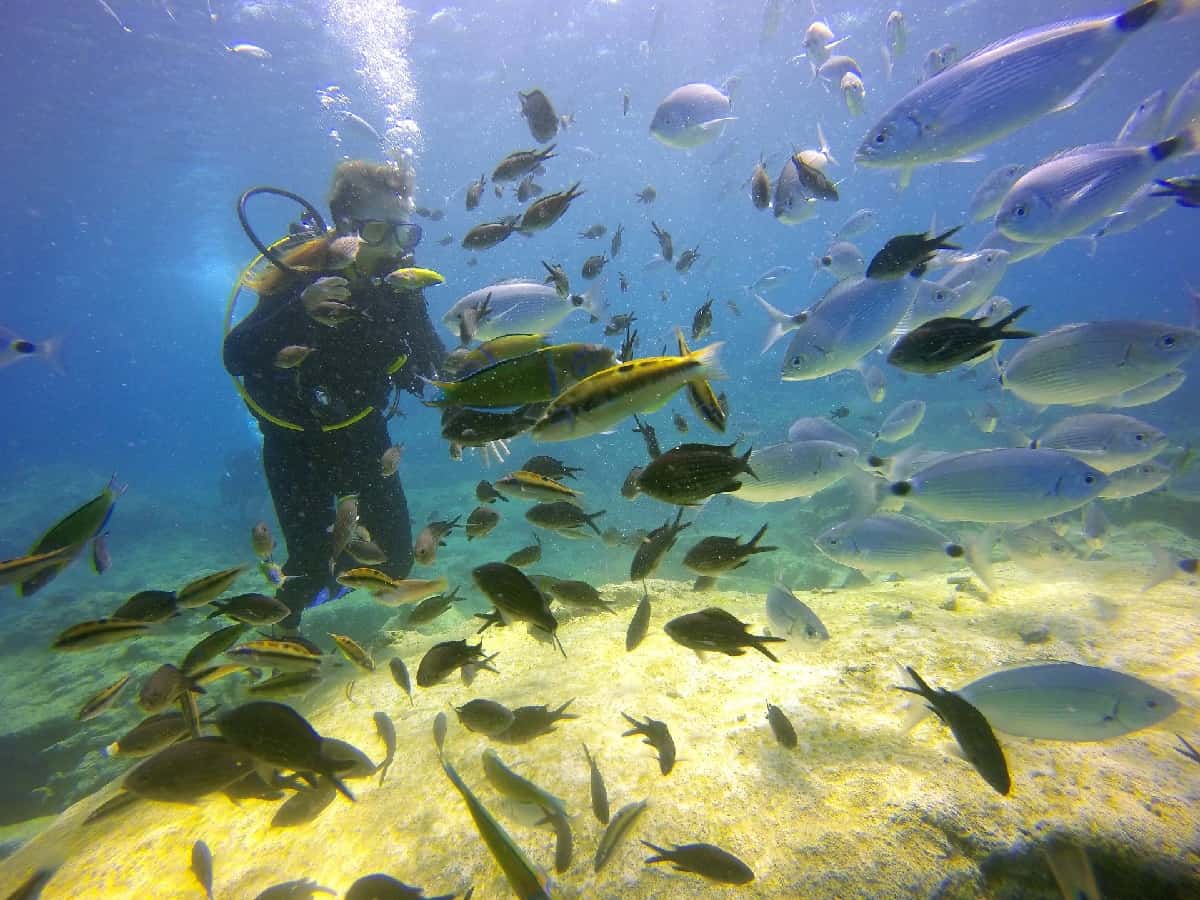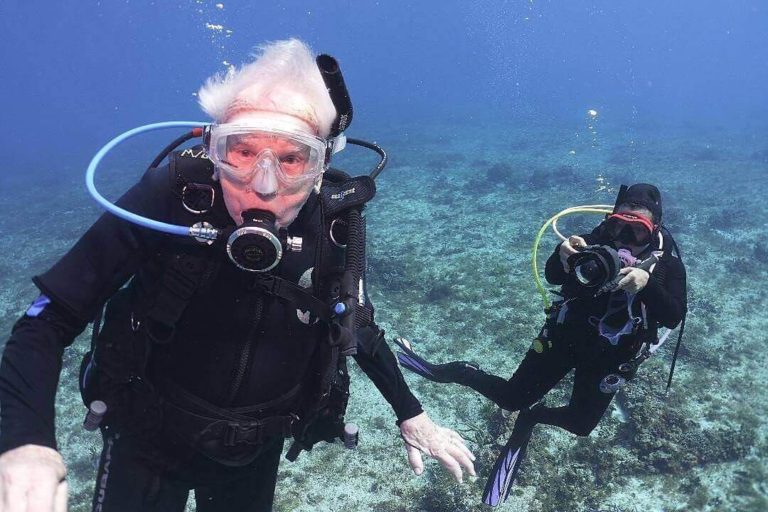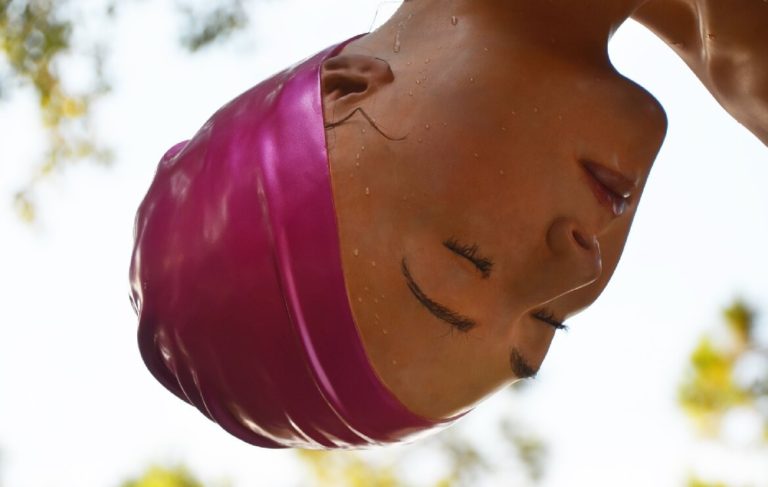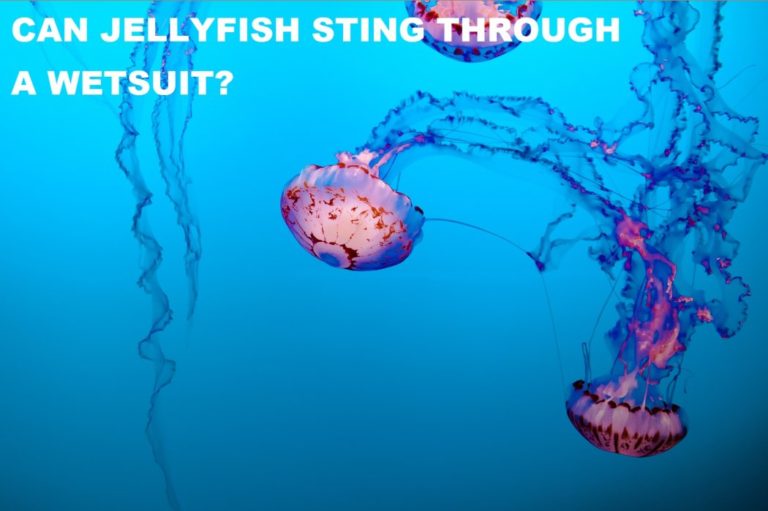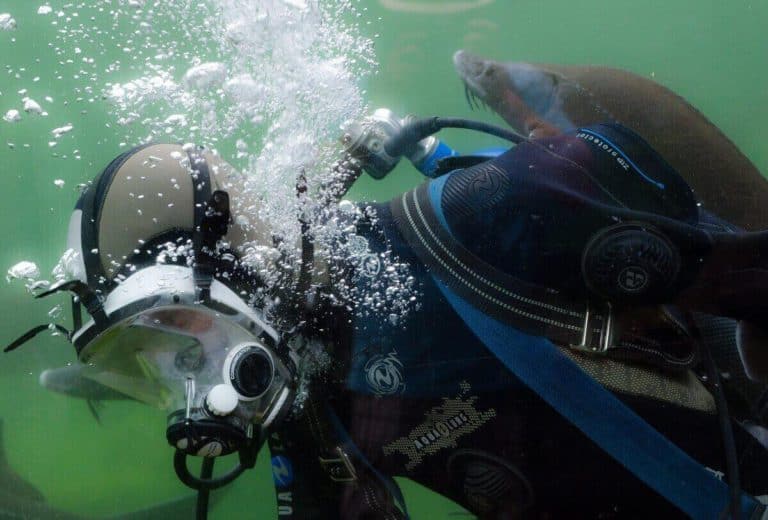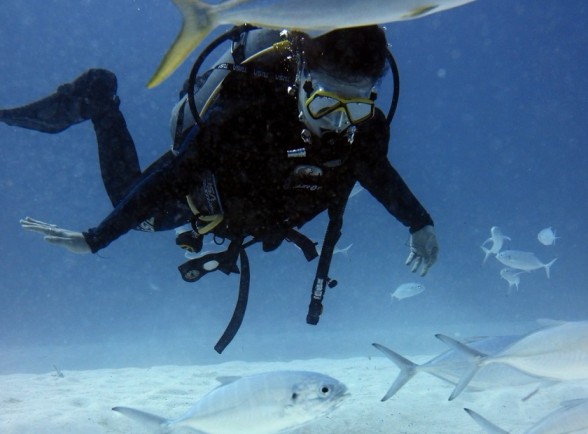How Many Calories Do You Burn Scuba Diving
Scuba diving is considered a “lazy” sport since divers don’t do much with their bodies while exploring the water. The main body part used while scuba diving is the feet to help you glide from one point to the next. Despite this common perception scuba dives do in fact engage their core muscles to help maintain a streamlined position in the water. With this in mind, one may wonder how many calories do you burn scuba diving.
Scuba diving roughly burns 300 – 600 calories per hour. There are other factors to consider when calculating the number of calories burnt such as water temperatures, currents, depth and length of each dive, and experience.
Other factors such as the weight of equipment and gear do play a role in calorie burning. This may be directly or indirectly related since divers depend on buoyancy compensators while in water.
In this article we’ll look into the factors involved in scuba diving that lead to calorie burn, is scuba diving a good sport to help lose weight and so much more.
Let’s dive into it!
Calorie facts for scuba diving 😊🤿#remoradivers #scubadiving #lesenscuba #kelasscuba #scubadiver #scuba #diving #diver #scubamurah #scuba850 #cikguscuba #malaysia #dive #divecentre #toliveistodive #sdi #padi #openwaterdiver #calories #caloriecounting #fitness #health #facts pic.twitter.com/at1divGBYv
— SCUBA with Remora Divers (@remora_divers) January 21, 2020
How Many Calories Does Scuba Diving Burn per Hour
As mentioned earlier scuba diving can burn up to 600 calories per hour or more.
The number of calories burned per dive depend on how deep the divers goes, how often they move around and the kind of gear they have on.
A scuba diver diving into deep parts of the water will naturally spend more energy to get there and maneuver around the different kinds of debris and also marine life. The diver in this scenario can burn up to 700 calories or more per hour.
On the other hand, a recreational diver who may only div into shallow waters and only explores a smaller area can burn about 300 – 400 calories per hour.
First-time divers also tend to burn more calories compared to seasoned divers. This is because new divers tend to have a balancing problem. A seasoned diver has experience in how to glide effortlessly through the water meaning they burn fewer calories.
In addition, first-time divers may struggle to carry the weights of the scuba gear making them spend more energy.
Water also plays a role in how many calories are burned while scuba diving.
Whether warm or cold, water will draw heat away from the body at a much faster rate than air. As the heat is drawn away from the body our metabolism works harder to keep the body warm, calories are burned in the process.
The speed at which a diver glides through the water increases or slows down the number of calories burned. In most cases, deep-diving involves fast movement to get to the lower levels expending more calories.

Is Scuba Diving a Good WorkOut
Many scuba divers tend to have the perfect body; does this mean scuba diving is a good workout?
While this is notable among many divers, scuba diving alone isn’t a workout routine to help you stay in shape. Many if not all scuba divers do have an active lifestyle involving working out at the gym or at home and participating in other active activities.
One of the requirements to begin scuba diving lessons is that you have to be in good physical shape and health. This requirement is applicable even after achieving diving certifications.
Generally, good physical health lowers the risks of decompression sickness, reduces the risk of cardiovascular diseases which can be fatal in any environment and also helps you develop and maintain mental strength while underwater.
Maintaining balance underwater requires a great deal of physical strength and also engages the full body and mind.
In summary, scuba diving alone isn’t considered a workout to help keep your body in shape. Any diver can only take a few dives per day or per week depending on their schedule.

Is Scuba Diving Good For Weight Loss
Scuba diving does burn calories but is this enough to lose weight?
As mentioned earlier, water draws away heat from the body at a higher rate compared to air meaning calories are burned in the process.
As a weight-loss activity scuba diving alone may not be the best choice because one person can do up to 3 -5 dives per day. You would need to dive so many times a day for significant weight loss.
Most people especially beginners may not complete three dives a day as this can be exhausting and you have to consider other factors too. Consider nitrogen uptake during the dive, physical health, risk of hypothermia, and oxygen toxicity among others.
All these factors can be limiting to any individual and the number of times thy can dive in a day. While it’s a way to lose weight you also want to avoid decompression sickness or other accidents related to exhaustion such as drowning.
When starting out a weight loss journey even the smallest takes can be very exhausting including diving for one hour.
It’s best to first weigh out other weight loss activities and consult with your doctor before taking up scuba diving as a full-time weight loss sport.
One of the best ways is to pair scuba diving with other weight loss activities. For instance, work out on some days and go scuba diving on the rest of the days. In the long run, all these activities will add up and you can start noticing significant weight loss.
Read More: WHAT TO EAT BEFORE SCUBA DIVING
How Do Divers Lose Weight
Many divers have active lifestyles beyond scuba diving. Many actively attend the gym to maintain good health and physical shape.
Calorie burnt during scuba diving is an added bonus to a healthy and active lifestyle.
The body gets toned as the diver engages the body to navigate underwater and maintain balance.
Carrying the scuba diving gear and equipment from the boat to the diving spot can also count as a workout. Some of the equipment tends to be heavy and the distance adds up the weight at the end of the day.
Although not directly related to being underwater, this part can also help in burning calories and weight loss.
Why Am I So Hungry After Scuba Diving
Being in water alone draws heat away from the body. This makes the internal organs work extra hard to replace the lost heat and prevent you from going into hypothermia or even freezing. As all these metabolic processes take place energy is used up meaning calories are burned.
Secondly, your body works together as a unit to help you maintain balance and glide in the water. Although divers do depend on buoyancy compensation devices the body is still involved.
Having the gear and equipment strapped onto your body adds some weight that you have to work with.
Generally, divers use up energy which will naturally make you feel hungry and tired after the dive.
Also depending on how fast you were moving in the water, how far you dived, how long you dived and the underwater currents you will use a lot of energy making you hungry.
When diving, you may not notice how many calories you have burned or even how hungry you could be.
Let’s be honest it’s so much fun being underwater exploring and seeing all the beautiful marine life, you only start feeling the effects after the dive.
To counter this, don’t shy away from enjoying a meal a few hours before the dive. This can in fact give you more energy for the dive.
Other factors to consider
Some factors to consider when calculating how many calories were burnt when scuba diving include; age, gender, BMI, and special gear.
Younger people burn more calories than older people. They’ll also tend to move faster than an older person adding up to the calories burnt.
Looking at gender, men naturally burn more calories than women and also require more calories in a day.
Deep-sea divers carry special diving gear and equipment which can be heavier than recreational diving gear, therefore, burning more calories. Deep divers also move around water a lot compared to other divers and also encounter more obstacles in extreme environments.
We are all built different, BMI varies from one diver to the other. Meaning the rate at which I burn calories may not be the same rate, my dive buddy, burns calories.
Final Take
In this article, we’ve looked into how many calories do you burn Scuba diving. The answer will vary depending on the factors discussed above but roughly a diver will burn 300 – 600 calories per hour.
Scuba diving can help you lose weight but shouldn’t be the only activity you depend upon to reach this goal. Combining scuba diving with other training programs and a healthy diet, divers can see significant results sooner.
Remember to maintain a healthy lifestyle to keep enjoying dives. Being healthy goes a long way in reducing risks and accidents while driving.
I hope this article provided valuable information to you.

